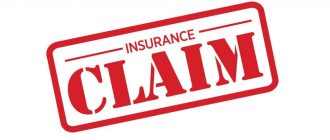
Tips for Being an Exceptional Claims Adjuster.
Are you looking to become an exceptional claims adjuster? Look no further! We have gathered expert advice and best practices to help you succeed in this rewarding career.
Tip 1: Continuously improve your skills
Being an exceptional claims adjuster requires ongoing learning and development. Stay updated on the latest industry trends, technology advancements, and best practices. Attend workshops, conferences, and training sessions to enhance your knowledge and skills.
Tip 2: Develop excellent communication skills
An exceptional claims adjuster should have strong communication skills. Be clear, concise, and empathetic when speaking with clients, insurance agents, and other professionals. Effective communication can help you build trust, resolve conflicts, and provide exceptional customer service.
Tip 3: Be a meticulous investigator
An exceptional claims adjuster pays attention to detail and is an excellent investigator. Scrutinize every piece of evidence, interview witnesses, and collaborate with experts to uncover the truth. Your thoroughness will ensure accurate claim evaluations and minimize fraud.
Tip 4: Show empathy to claimants
An exceptional claims adjuster understands the emotional impact of a loss on claimants. Show empathy and compassion when interacting with individuals who have experienced an unfortunate event. Take the time to actively listen, reassure, and guide claimants through the claims process.
Tip 5: Be adaptable and flexible
An exceptional claims adjuster embraces change and quickly adapts to new situations. Insurance policies, regulations, and client expectations can evolve, so it is essential to be flexible and open-minded. Embrace new technologies and workflows to enhance efficiency and provide exceptional service.
By following these tips and incorporating them into your daily work as a claims adjuster, you will differentiate yourself and become an exceptional professional in the field. Good luck!
Developing Strong Analytical Skills
Being an exceptional claims adjuster requires more than just technical knowledge and experience. It also involves developing strong analytical skills that can help you accurately assess and evaluate claims. Here are some tips to help you improve your analytical abilities:
1. Pay attention to details: Analytical skills are all about paying attention to details. Make sure you thoroughly review all the information provided in a claim, including relevant documents, photos, and statements. Look for inconsistencies or missing information that could impact your assessment.
2. Think critically: Don’t take everything at face value. Use your critical thinking skills to analyze the facts and evidence in a claim. Consider different perspectives and ask questions to uncover the truth. Remember, being able to think critically is essential for making fair and informed decisions.
3. Improve your problem-solving abilities: Claims adjusting often involves dealing with complex problems. Practice your problem-solving skills by challenging yourself with different scenarios. Look for alternative solutions and think creatively to find the best resolution.
4. Stay updated on industry trends: The claims industry is constantly evolving, and new trends and technologies emerge all the time. Stay updated on the latest developments by attending industry conferences, participating in training programs, and reading industry publications. This will enable you to stay ahead of the curve and make more informed decisions.
5. Seek feedback and learn from others: Don’t be afraid to ask for feedback from your colleagues or supervisors. Their insights can help you identify areas for improvement and strengthen your analytical skills. Additionally, consider seeking guidance from experienced adjusters who can share their best practices and lessons learned.
Remember, developing strong analytical skills takes time and practice. Be patient with yourself and embrace opportunities to enhance your abilities. By continuously improving your analytical skills, you can become an exceptional claims adjuster.
Effective Communication Techniques
As an exceptional claims adjuster, effective communication is a crucial skill that can greatly impact your success in the field. Here are some tips for being an effective communicator:
1. Be a Good Listener: One of the most important aspects of effective communication is being an active and attentive listener. Take the time to truly understand the concerns and needs of the policyholders and other parties involved in the claims process. This will help you gather accurate information and build rapport.
2. Use Clear and Concise Language: Avoid using jargon or technical terms that may confuse the policyholders. Instead, use simple, straightforward language that is easy to understand. This will help ensure that everyone is on the same page and minimize any misunderstandings.
3. Practice Empathy: Show empathy towards the policyholders by acknowledging their emotions and concerns. This can be done through active listening, validating their feelings, and offering support. By putting yourself in their shoes, you can build trust and establish a positive rapport.
4. Adapt to Different Communication Styles: Everyone communicates differently, so it’s important to adapt your communication style to match the needs of the individual you’re interacting with. Some people may prefer email or text messages, while others may prefer phone calls or in-person meetings. By being flexible and accommodating, you can make the communication process more effective and efficient.
5. Be Transparent and Honest: Transparency and honesty are key to building trust with policyholders. Clearly explain the claims process, manage expectations, and provide regular updates. If there are any challenges or delays, communicate them promptly and provide reassurance that you’re actively working on resolving the issues.
6. Use Technology to Enhance Communication: Take advantage of modern technology to enhance communication with policyholders, such as mobile apps, online portals, and video conferences. These tools can streamline the claims process and provide a more convenient and efficient experience for everyone involved.
By implementing these effective communication techniques, you can become an even more exceptional claims adjuster and provide the best possible service to your policyholders.
Importance of Building Rapport with Clients
As an exceptional claims adjuster, building rapport with clients is of utmost importance. Establishing a strong and trusting relationship from the start can greatly impact the outcome of a claim. When clients feel valued, heard, and understood, they are more likely to cooperate and provide the necessary information for a successful resolution.
Building rapport involves effective communication and active listening. Taking the time to listen to clients’ concerns, empathizing with their situation, and showing genuine interest in their needs can make a significant difference. Being an adjuster requires more than just technical expertise; it requires interpersonal skills and the ability to connect with people on a personal level.
Acknowledging the emotional impact of the claims process on clients is essential. Claims can often cause stress, anxiety, and uncertainty for those involved. By acknowledging their emotions and demonstrating empathy, adjusters can provide reassurance and support, helping clients navigate through the process with greater ease.
An important aspect of building rapport is also being transparent and honest with clients. Keeping clients informed about the progress of their claim, explaining complex concepts in a clear and understandable manner, and managing their expectations can help build trust and credibility. Clients appreciate adjusters who are upfront about what they can and cannot do, ensuring that there are no surprises along the way.
Furthermore, building rapport with clients involves being responsive and accessible. Promptly returning calls and emails, being available to answer questions or address concerns, and providing updates in a timely manner demonstrate a commitment to client satisfaction. Adjusters who prioritize client communication establish themselves as reliable resources and instill confidence in their abilities.
In conclusion, being an exceptional claims adjuster goes beyond technical expertise; it requires the ability to build rapport with clients. By effectively communicating, actively listening, acknowledging emotions, being transparent, and remaining accessible, adjusters can foster strong client relationships. These relationships not only enhance the claims process but also contribute to overall client satisfaction and trust in the adjuster’s abilities.
Utilizing Technology for Efficient Claims Processing
Being an exceptional claims adjuster requires staying up to date with the latest technology and utilizing it effectively for efficient claims processing. Here are some tips for harnessing the power of technology in your claims adjustment process:
| Tips | Benefits |
| 1. Embrace digital documentation | – Eliminate the need for physical paperwork – Streamline data entry and retrieval – Enhance organization and accessibility of claim files |
| 2. Invest in claims management software | – Automate repetitive tasks and processes – Improve accuracy and speed of claims handling – Increase collaboration and communication among team members |
| 3. Use mobile apps for fieldwork | – Capture photos and videos directly from the field – File claims instantly on-site – Expedite the investigation and assessment process |
| 4. Implement artificial intelligence (AI) technologies | – Analyze large volumes of data for insights and patterns – Enhance fraud detection and prevention – Improve decision-making and claims evaluation |
| 5. Utilize remote collaboration tools | – Facilitate remote communication with claimants and colleagues – Conduct virtual meetings and inspections – Reduce travel and operational costs |
By integrating these tips into your claims adjustment process, you can maximize efficiency, accuracy, and customer satisfaction. Embracing technology allows you to stay ahead in the ever-evolving field of claims handling and deliver exceptional results.
Attention to Detail in Documenting Claims
As a claims adjuster, attention to detail is crucial when it comes to documenting claims. Documenting every aspect of a claim accurately and thoroughly helps ensure a fair and efficient claims process for all parties involved.
Here are some tips for being an exceptional claims adjuster:
| Tip 1: Conduct a thorough investigation | Before documenting a claim, it is important to conduct a thorough investigation. Gather all relevant information, interview witnesses, and review any available documents. This will help you gather the facts needed to accurately document the claim. |
| Tip 2: Use clear and concise language | When documenting a claim, use clear and concise language to ensure that all parties can easily understand the details of the claim. Avoid jargon or technical terms that may confuse the reader. |
| Tip 3: Include all relevant details | Provide a detailed account of the incident, including the date, time, and location. Describe the nature of the claim, the parties involved, and any relevant supporting evidence. Including all relevant details will help prevent misunderstandings and potential disputes. |
| Tip 4: Document all interactions | Keep a record of all interactions related to the claim, including phone calls, emails, and meetings. Documenting interactions will help maintain a clear timeline of events and provide evidence of any agreements or disagreements. |
| Tip 5: Review and verify information | Before finalizing the claim documentation, review and verify all information for accuracy. Check for any inconsistencies or missing details, and make any necessary corrections. Attention to detail in reviewing and verifying information is essential for a well-documented claim. |
By following these tips and paying careful attention to detail, you can be an exceptional claims adjuster who ensures a fair and efficient claims process. Remember, accurate and thorough documentation is key to success in this role.
Continuous Learning and Professional Development
As an exceptional claims adjuster, it is important to always strive for continuous learning and professional development. Here are some tips to help you in your journey:
- Stay updated with the latest industry trends and developments by attending workshops, seminars, and conferences.
- Network with other claims adjusters to exchange knowledge and best practices.
- Join professional organizations and associations related to claims adjusting to access resources and opportunities for further education.
- Take advantage of online courses and certifications to enhance your skills and knowledge in the field.
- Read industry publications and publications by experts in claims adjusting to stay informed about new techniques and strategies.
- Pursue additional certifications such as the Certified Claims Professional (CCP) designation to further demonstrate your expertise and commitment to professional growth.
- Seek mentorship from experienced claims adjusters who can provide guidance and support throughout your career.
- Stay curious and open-minded, always seeking new knowledge and approaches to better serve your clients and handle claims efficiently.
By continuously learning and investing in your professional development, you can become an even more exceptional claims adjuster, staying ahead of the curve and providing top-notch service to your clients.
Handling Difficult and Challenging Claims
As an exceptional claims adjuster, it is crucial to be prepared for handling difficult and challenging claims. Dealing with complex situations and intricate details requires expert advice and best practices. Here are some tips to help you navigate through these types of claims:
1. Communicate effectively: Establish clear and concise communication with all parties involved in the claim. This includes the insured, witnesses, experts, and other relevant individuals. Effective communication helps in understanding the situation fully and gathering all necessary information.
2. Investigate thoroughly: When faced with challenging claims, it is important to conduct a thorough investigation. Collect all relevant evidence, document statements, and gather supporting documents to build a comprehensive case. This will ensure accurate assessment and evaluation of the claim.
3. Analyze objectively: Maintain an objective perspective when evaluating difficult claims. Be open-minded and consider all available information without biases or prejudices. This will contribute to fair and accurate claim decisions.
4. Seek expert advice: If you encounter a particularly complicated claim, don’t hesitate to consult with experts in relevant fields. Their expertise and knowledge can provide valuable insights and help you make informed decisions.
5. Stay updated: Keep yourself informed about the latest advancements and changes in the industry. Regularly attend training sessions, seminars, and workshops to enhance your skills and stay up-to-date with the best practices in claims adjusting.
6. Maintain professionalism: Regardless of the difficulties posed by a claim, always maintain a high level of professionalism. Treat all parties involved with respect, empathy, and fairness. This will instill confidence in your abilities as a claims adjuster and contribute to a positive resolution.
7. Exercise empathy: Difficult claims often involve individuals going through challenging circumstances. Show empathy and understanding while dealing with these cases. Make an effort to provide emotional support and guide them through the claims process with compassion.
By following these tips for handling difficult and challenging claims, you can continue to be an exceptional claims adjuster. Remember, every claim presents a unique set of challenges, so it is essential to adapt and apply the best practices accordingly.
Collaborating with Other Professionals in the Industry
Being an exceptional claims adjuster requires more than just individual expertise and knowledge. It often requires collaborating with other professionals in the industry to ensure a smooth claims process and deliver the best possible results for policyholders. Here are some tips on how to effectively collaborate with other professionals:
| 1. | Establish open lines of communication with other professionals, such as insurance company representatives, legal experts, and medical professionals. Regularly communicate and exchange information to stay informed about claim developments. |
| 2. | Listen actively to the insights and opinions of other professionals. Recognize that collaboration involves incorporating different perspectives and expertise to reach the best possible outcome for all parties involved. |
| 3. | Share your knowledge and expertise with others. By providing valuable information and insights, you can contribute to the overall success of the claims process and help other professionals make informed decisions. |
| 4. | Be receptive to feedback and suggestions from other professionals. Constructive criticism can help you improve your skills and approach to claims adjustment. |
| 5. | Collaborate on complex cases. Some claims require the expertise and cooperation of multiple professionals to achieve a fair and accurate resolution. By working together, you can pool your resources and knowledge to find the best possible solution. |
By following these tips and actively collaborating with other professionals in the industry, you can enhance your effectiveness as a claims adjuster and provide exceptional service to policyholders.
Time Management and Prioritization
Time management and prioritization are crucial skills for an exceptional claims adjuster. With a heavy workload and multiple claims to handle, it is important to effectively manage your time to ensure efficiency and productivity. Here are some tips to help you master time management and prioritize your tasks:
- Set clear goals and objectives for each day. Write down the tasks you need to accomplish and prioritize them based on their urgency and importance.
- Break down larger tasks into smaller, manageable steps. This will help you stay organized and focused.
- Use a calendar or planner to schedule your tasks and allocate specific time slots for each task. Be realistic with your time estimates.
- Eliminate distractions and create a conducive work environment. Minimize interruptions and avoid multitasking, as it can hinder productivity.
- Take regular breaks to recharge and reenergize. This will help prevent burnout and improve your overall productivity.
- Delegate tasks whenever possible. If you have a team, leverage their skills and expertise to share the workload and achieve desired outcomes.
- Regularly reassess your priorities and adjust as needed. As new claims come in or circumstances change, be flexible in reprioritizing your tasks.
- Use technology tools and resources to streamline your workflow. Utilize software and apps that can automate repetitive tasks, track progress, and improve efficiency.
- Practice effective communication and collaboration. Keep stakeholders informed, maintain open lines of communication, and work as a team to ensure claims are processed efficiently.
By implementing these time management and prioritization techniques, you can become an exceptional claims adjuster who consistently meets deadlines, delivers quality work, and provides exceptional service to policyholders.
Ethics and Integrity in Claims Handling
As an exceptional claims adjuster, you must always prioritize ethics and integrity in your work. Follow these tips to ensure that you handle claims with the utmost honesty and professionalism:
1. Be truthful and transparent: When interacting with claimants and insurance companies, always provide accurate information and never withhold or manipulate facts.
2. Treat everyone fairly: Regardless of the nature of the claim, treat all individuals involved with respect and fairness. Be impartial and base your decisions solely on the merits of the case.
3. Maintain confidentiality: Claims often involve sensitive information, so it is crucial to keep all details confidential. Safeguard claimants’ personal data and only share it with authorized parties.
4. Avoid conflicts of interest: Steer clear of any situations that may create a conflict of interest. If you have a personal relationship or financial tie with a claimant or insurance company, disclose it immediately and remove yourself from the case if necessary.
5. Communicate effectively: Clear and open communication is key in claims handling. Keep all parties informed about the progress of the claim and promptly address any concerns or questions they may have.
By following these tips, you will demonstrate your commitment to upholding ethics and integrity in claims handling. Being an exceptional claims adjuster means always doing the right thing, even when faced with challenging situations.
Negotiation and Settlement Techniques
Being an exceptional claims adjuster requires mastering the art of negotiation and settlement. These techniques are crucial in achieving successful resolutions for both the insurance company and the policyholder.
Here are some tips for becoming an exceptional adjuster:
- Prepare thoroughly: Before entering any negotiation or settlement discussion, it is important to gather all relevant information, review the policy details, assess the extent of the claim, and understand the policyholder’s needs and concerns.
- Listen actively: Effective communication starts with active listening. Pay attention to the policyholder’s perspective, needs, and expectations. This will help you understand their position and find common ground for a fair resolution.
- Build trust and rapport: Trust is essential for successful negotiations. Treat the policyholder with respect, empathy, and professionalism. Establishing rapport can make the negotiation process smoother and increase the chances of reaching a mutually beneficial settlement.
- Present a strong case: To persuade the policyholder, present a clear and compelling argument. Use evidence, policy provisions, and any relevant documentation to support your position. Be prepared to address counterarguments and provide justifications for any decisions made.
- Be flexible and creative: Sometimes, a rigid stance can hinder the negotiation process. Being open to exploring alternative solutions and demonstrating flexibility can lead to innovative settlement options that satisfy both parties.
- Focus on win-win solutions: Aim for solutions that benefit both the insurance company and the policyholder. By showing a willingness to find common ground and mutually beneficial outcomes, you can foster a positive relationship and improve the overall claims experience.
- Document agreements: Once an agreement has been reached, make sure to document all the terms and conditions in writing. This helps avoid misunderstandings in the future and solidifies the resolution.
By applying these negotiation and settlement techniques, you can be an exceptional claims adjuster who resolves claims efficiently, fairly, and to the satisfaction of all parties involved.
Keeping Up with Industry Trends and Changes
As a claims adjuster, it is crucial to stay updated on the latest industry trends and changes. This ensures that you are equipped with the knowledge and skills necessary to handle various claims effectively and efficiently. Here are some tips for keeping up with industry trends:
1. Read industry publications and articles: Stay informed by regularly reading industry publications and articles. These sources provide valuable insights into emerging trends, changes in regulations, and best practices.
2. Attend industry conferences and seminars: Participating in industry conferences and seminars allows you to network with other claims adjusters and professionals. It also provides opportunities to learn from experts in the field and gain valuable knowledge about the latest trends and changes.
3. Join professional associations and organizations: Becoming a member of professional associations and organizations related to claims adjusting can provide you with access to resources, updates, and networking opportunities. These associations often host events and webinars that focus on industry trends and changes.
4. Engage in continuous learning: The claims adjusting industry is constantly evolving, so it is essential to invest in your professional development. Take advantage of online courses, webinars, and workshops that focus on industry updates and new techniques.
5. Network with industry peers: Building relationships with other claims adjusters is valuable for staying up to date with industry trends and changes. Networking events, online forums, and social media can all provide opportunities to connect with peers and share knowledge.
By following these tips and actively seeking out information, you can stay ahead of the curve and be an exceptional claims adjuster.
undefined
What is the main focus of this book?
The main focus of this book is to provide expert advice and best practices for becoming an exceptional claims adjuster.
Who is the author of this book?
The author of this book is an industry expert in the field of claims adjusting, but their name is not specified in the product information.
What topics are covered in this book?
This book covers a wide range of topics related to claims adjusting, including best practices, negotiation techniques, documentation, and customer service.
Is this book suitable for beginners in the field of claims adjusting?
Yes, this book is suitable for beginners in the field of claims adjusting as it provides expert advice and best practices that can help them excel in their role.






